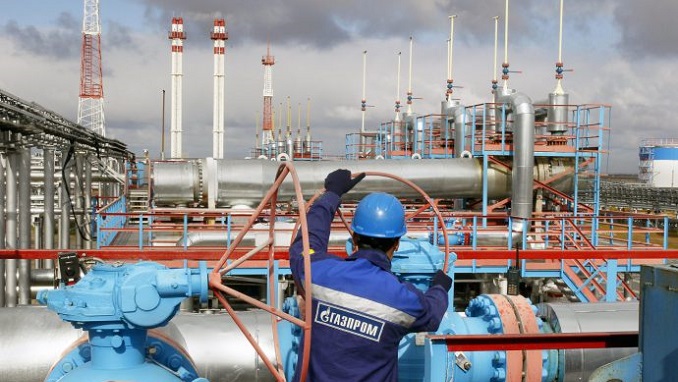Russia’s Gazprom has signed a protocol with the Turkish government on the land-based part of the transit leg of the TurkStream gas pipeline, the company has said.
According to the statement, Gazprom had also agreed with Turkish firm Botas to end an arbitration dispute over the terms of gas supplies related to the project, which will bring Russian natural gas to Europe on a southern route that would bypass Ukraine.
Without providing details, Gazprom said the dispute with Botas would be settled out of court. Until an agreement was reached, Ankara had delayed issuing a permit to Gazprom to start building the land-based parts of the pipeline.
According to TASS, Turkish President Recep Tayyip Erdogan said on Saturday that the two countries had reached a retroactive agreement for a 10.25 percent discount on the natural gas Ankara buys from Moscow.
Moscow froze talks on the $12 billion TurkStream project when Turkish-Russian relations plummeted after the downing of a Russian fighter jet on the Syrian border by Turkish forces in 2015. At the time, Moscow imposed trade and travel sanctions against Turkey, and Russian and Turkish officials made personal attacks against each other.
But a letter of regret from Erdogan on the death of the plane’s pilot led to a normalization of ties, and the two countries have attempted to improve relations in recent months.
The 910-kilometer TurkStream project is one of several major undersea pipeline projects the Kremlin has pushed in recent years in an effort to bypass older pipeline networks that transit through bitter rival Ukraine.
Nord Stream sends gas directly from Russia under the Baltic Sea to Germany, while a proposed South Stream was supposed to send Russian gas under the Black Sea to Bulgaria. South Stream was shelved in 2014 after EU opposition and the crisis over Russia’s annexation of Ukraine’s Crimean Peninsula.
Turkey has also purchased S-400 air-defense missile systems from Russia — a deal that has raised concern among Turkey’s NATO partners over questions about its integration with Western defense systems and of Ankara’s tightening of relations with Russia.












